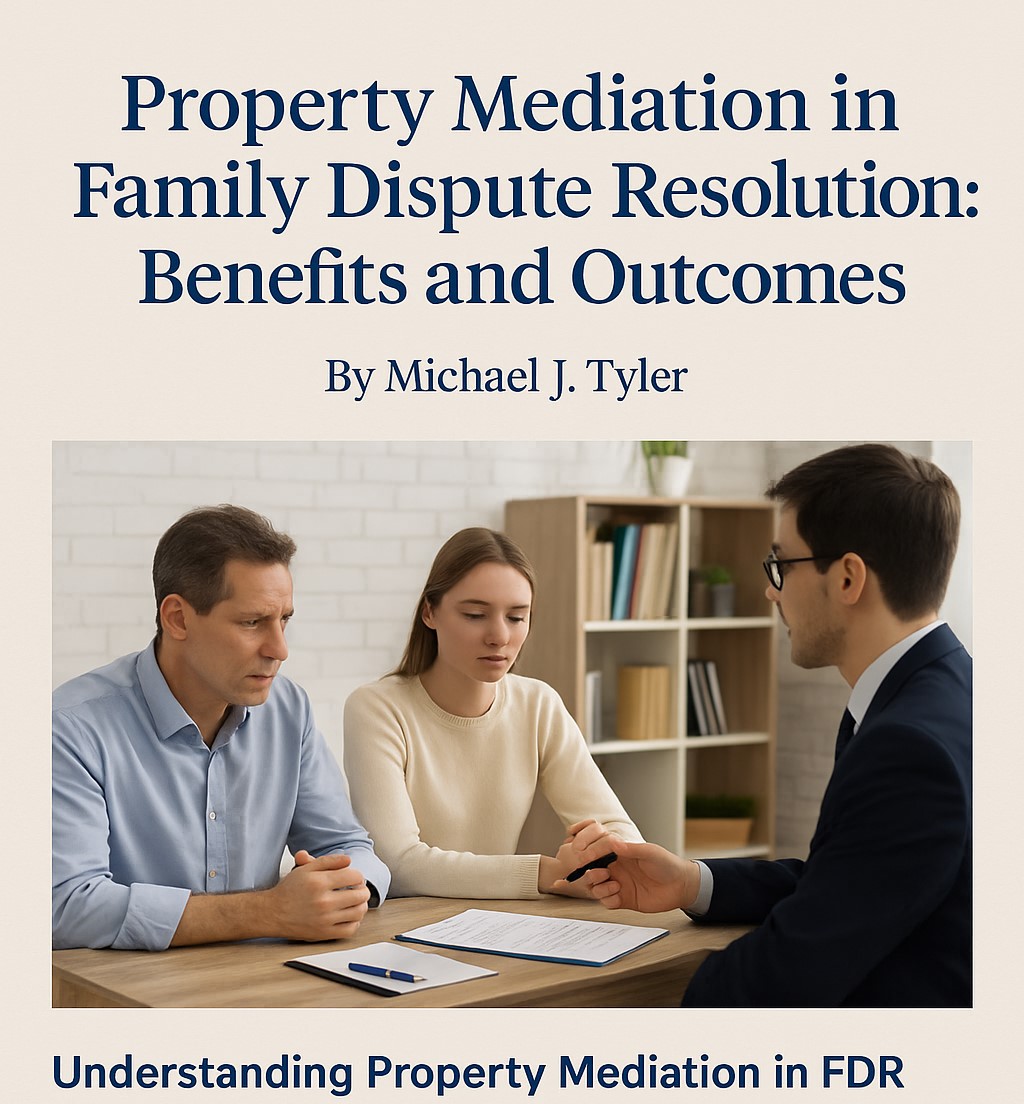
By Michael J. Tyler
In the field of Family Dispute Resolution (FDR), property mediation has emerged as one of the most constructive and transformative ways for separating couples to resolve financial matters. Unlike adversarial legal proceedings, which can heighten conflict and drain emotional and financial resources, mediation offers a balanced, respectful, and efficient path towards resolution.
Understanding Property Mediation in FDR
Property mediation takes place when separating parties need to sort out how their assets and liabilities will be divided. This may include the family home, vehicles, savings, superannuation, debts, or business interests. Within the FDR process, the mediator provides a structured environment that encourages open and honest communication.
The mediator does not take sides or make decisions for the parties. Instead, their role is to help both individuals identify what matters most, share relevant information transparently, and explore options for a fair and workable agreement. This often involves “reality testing”, where each party considers how a proposed solution would function in daily life and in the long term.
The Benefits of Property Mediation
1. Cost-Effective and Efficient
Court proceedings about property can take many months, sometimes years, and often cost more than the property pool itself. Mediation provides a quicker, more affordable alternative, helping parties reach agreement without lengthy delays or high legal fees.
2. Preserves Relationships
Even after separation, maintaining a cooperative relationship is important, especially where children are involved. Mediation promotes respectful communication and future-focused discussion, which helps reduce animosity and supports better co-parenting.
3. Empowerment and Control
In mediation, the decisions rest with the parties, not a judge. This sense of ownership increases commitment to the outcome and provides greater satisfaction with the final agreement.
4. Flexibility and Confidentiality
Mediation allows for creative solutions that a court may not consider, such as staged property transfers, shared use of assets, or flexible financial arrangements. The process is confidential, which helps both parties speak openly and negotiate honestly.
The Outcomes of Effective Property Mediation
When mediation is successful, the parties may formalise their agreement through Consent Orders or a Binding Financial Agreement, giving it legal effect. Yet, the true outcome of property mediation goes beyond documents and signatures. It lies in the ability of both parties to move forward with financial stability, emotional closure, and mutual respect.
When conducted with professionalism and integrity, property mediation in FDR can transform conflict into understanding. It is not about who wins or loses, but about reaching clarity and fairness. The best measure of success is not only the agreement itself, but also the peace of mind that comes when both individuals can rebuild their lives independently,